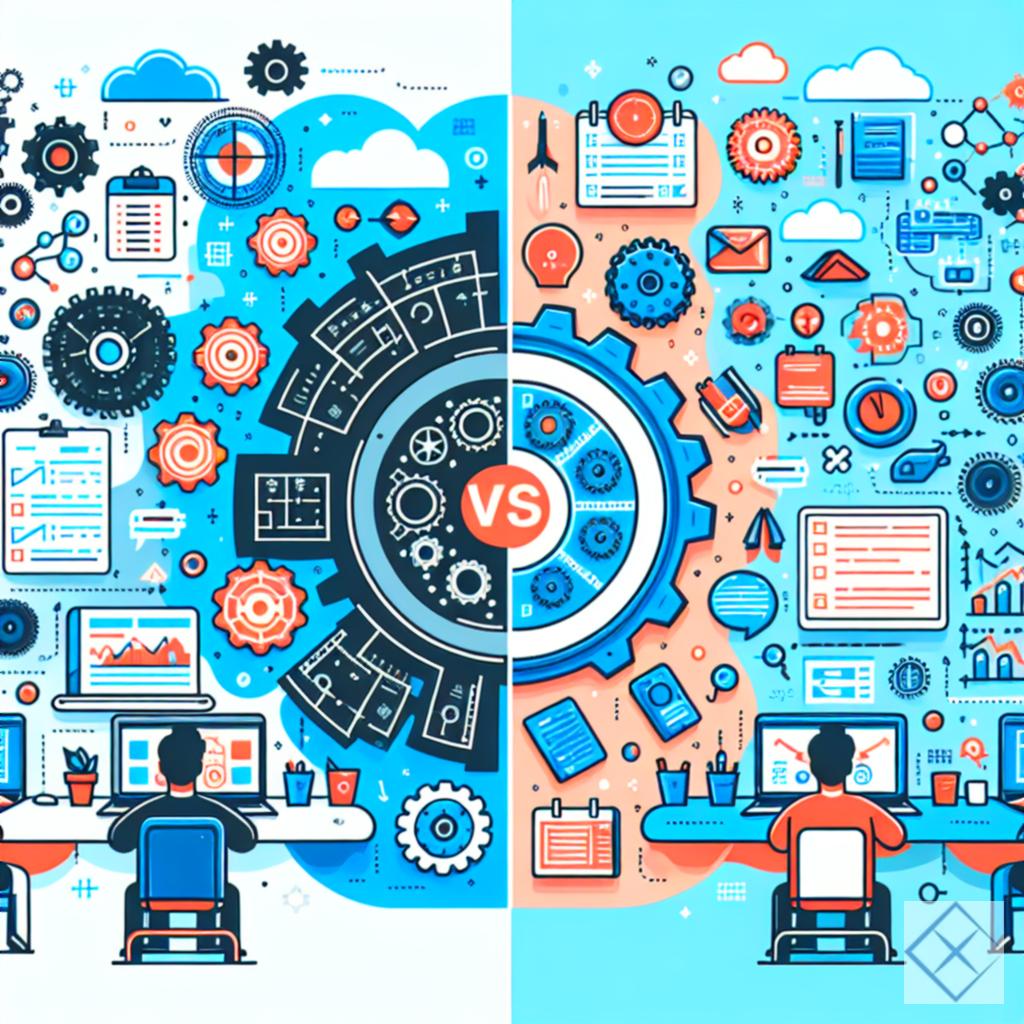Engineering management vs Project management

Engineering Management vs Project Management: Understanding the Distinctions
Navigating the realms of engineering management and project management can be a perplexing endeavor, especially for those contemplating a career in one of these fields. While they may seem similar at first glance, these roles encompass distinct responsibilities, skill sets, and lifestyles. In this blog post, we will delve into the differences between engineering management and project management, exploring how each role contributes to an organization and the unique challenges they face.
Defining the Roles
Engineering Manager (EM)
An Engineering Manager is primarily focused on leading a team of engineers. Their responsibilities include:
- People Management: EMs oversee the career development of their team members, handling performance evaluations, promotions, and coaching.
- Technical Contribution: While EMs are people managers, they often remain technically involved, contributing to code reviews, design decisions, and mentoring.
- Work Planning: They ensure that the engineers have a clear understanding of their tasks, manage time-off requests, and identify resource constraints.
- Efficiency and Culture: EMs work to enhance team efficiency and foster a positive work culture.
Project Manager (PM)
In contrast, a Project Manager is responsible for the successful delivery of projects and is often seen as a facilitator. Their key responsibilities include:
- Stakeholder Management: PMs interact with various stakeholders to gather business requirements and align projects with company goals.
- Resource Coordination: They manage work across multiple teams, ensuring that dependencies are identified and addressed.
- Timeline and Budget Management: PMs are accountable for delivering projects on time and within budget, which often involves juggling multiple disciplines.
Lifestyle and Stress Levels
When it comes to lifestyle, both roles can be demanding, but the nature of the stress differs significantly.
-
Engineering Managers often find themselves directly involved in their team’s work. This proximity allows them to address problems as they arise, giving them a sense of control over team dynamics. However, they must also balance their technical involvement with managerial duties.
-
Project Managers, on the other hand, frequently find themselves in the middle of competing demands from stakeholders and teams. They need to maintain synchronization across various functions, which can lead to a stressful environment, especially when dealing with tight deadlines and conflicting priorities.
Skill Sets
While there is some overlap, the skill sets required for each role are distinct:
-
Engineering Managers must possess strong technical skills alongside their management abilities. They need to understand the technical aspects of their team’s work and be capable of guiding their engineers through challenges.
-
Project Managers require excellent organizational skills and a knack for communication. They must be adept at managing timelines, budgets, and stakeholder expectations without necessarily having deep technical expertise.
Salary Considerations
Salary can vary widely based on factors such as location, company size, and level of experience. It’s essential to research industry standards in your region to get a clearer picture of potential earnings in each role.
Conclusion
In summary, while both engineering management and project management are vital to the success of tech organizations, they serve different purposes. An Engineering Manager is deeply involved with their team and technical processes, while a Project Manager orchestrates projects, aligning various stakeholders towards common goals.
Each role comes with its own set of challenges and rewards, and the choice between them often comes down to personal preference and career aspirations. As you consider your path, reflect on where your strengths lie and how you envision your ideal work environment.
What are your thoughts?
Have you worked in either role? How do you perceive the differences and similarities? Share your experiences in the comments below!